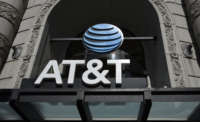
Fox News (11/11/21) has repeatedly reported on the nomination of Gigi Sohn to the FCC board to depict her as a “deeply divisive pick with a track record of hard left advocacy.”
President Joe Biden nominated consumer advocate Gigi Sohn to the Federal Communications Committee last October, yet the Senate has still failed to bring her nomination to a vote (FAIR.org, 4/19/22). Behind the scenes, corporate media, afraid of having a staunch defender of the public interest on the commission, are lobbying against her. One of those corporations, Comcast, owns a major cable news network that has been conspicuously silent about the stalled nomination.
While Fox News has brought up Sohn’s nomination nine times since November (to call her “radical” and “scary”—e.g., Tucker Carlson Tonight, 11/30/21), Comcast-owned MSNBC hasn’t mentioned her on any of its programs. (There was a one-sentence reference to her in a Steve Benen post on MSNBC.com—12/7/21—about Republican hypocrisy on “mean tweets.”)
It’s not that MSNBC won’t touch any stories about obstruction of Biden nominees, which has reached an unprecedented level in the Senate. It’s reported on Sen. Ron Johnson (R.–Wisc.) attempting to block Biden’s nominee to be an envoy on antisemitism (Deadline: White House, 2/10/22); on Republicans holding up his nominees for US attorney in Washington, DC (Rachel Maddow Show, 10/20/21), and myriad ambassadorships (Andrea Mitchell Reports, 12/8/21); and on their blockades against nominees for the Federal Reserve board (Andrea Mitchell Reports, 2/17/22).
The Rachel Maddow Show (4/18/22) reported on the American Accountability Foundation, a new right-wing dark money group launching smear campaigns against a whole slate of Biden nominees, uncovered by the New Yorker‘s Jane Mayer (4/16/22). Though Sohn is spotlighted on the group’s hit list, Maddow (and Mayer) didn’t mention her as a target.

“Comcast just hired a lobbying firm to try to torpedo Gigi Sohn’s nomination to the FCC,” the group Free Press declared in January 2022 (Ars Technica, 1/13/22).
Two differences between all of these obstructions covered by MSNBC and the one against Sohn: Democrats are among those stalling Sohn, and MSNBC owner Comcast is actively lobbying against her (Ars Technica, 1/13/22).
If Sohn is confirmed and takes the fifth seat on the FCC, the currently deadlocked board could actually take action to restore net neutrality rules, implemented under Obama and repealed under Trump, that ensure smaller companies and organizations have equal access to fast broadband speeds. It could also ensure equal access to broadband for American households, regardless of race or income, and protect against further media mergers that reduce consumer choice.
A functional FCC isn’t in the interests of Comcast and other big media corporations; it is, however, very much in the interests of MSNBC‘s viewers, as people who use the internet and watch TV, which is why the outlet’s silence is so noteworthy and troubling.
ACTION: Tell MSNBC to cover the obstruction of consumer advocate Gigi Sohn’s nomination to the FCC.
CONTACT: You can send a message to Rachel Maddow at Rachel@msnbc.com (or via Twitter:@Maddow). Andrea Mitchell is at Andrea.Mitchell@nbc.com (or on Twitter @MitchellReports). Chris Hayes and Lawrence O’Donnell can be reached via Twitter: @ChrisLHayes and @Lawrence, respectively. MSNBC‘s Twitter account is @MSNBC. Please remember that respectful communication is the most effective.
See FAIR’s previous action alert, with a link to call your senator: “Big Media Want Gigi Sohn Kept Off FCC Board” (4/19/22).
The post ACTION ALERT: Urge MSNBC to Cover Biden FCC Pick Blocked by Big Media appeared first on FAIR.
This post was originally published on FAIR.

